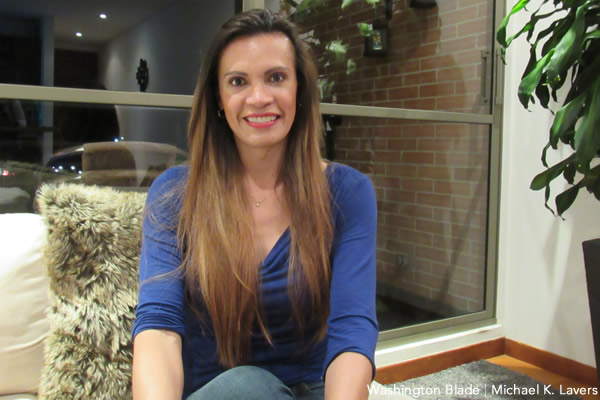Colombia LGBT Groups Launch Campaign Ahead of Country’s Elections
Advocacy groups in Colombia have launched a campaign ahead of the country’s national elections that seeks to educate voters about candidates’ positions on LGBT-specific issues.Colombia Diversa, Caribe Afirmativo, Santamaría Fundación, EgoCity and Sentiido last month launched the Vote for Equality campaign — Voto por la Igualdad in Spanish — that ranks each candidate on whether they support issues relating to non-discrimination and equality for LGBT Colombians. The Gay and Lesbian Victory Institute, the National Democratic Institute, the Netherlands Institution for Multiparty Democracy, the Latin American and Caribbean Network for Democracy, the Observatory for Political Participation of LGBTI People in Colombia and the Friedrich-Ebert-Stiftung foundation have provided support to the Colombian advocacy groups that are behind the effort.
“The Vote for Equality (campaign) has an objective to promote the free, transparent and informed vote of lesbian, gay, bisexual, trans and intersex people of Colombia, as well as that of allies and people who stand in solidarity to protect the rights of this population in the 2018 elections,” reads a press release the campaign released.
Congressional elections will take place on Sunday.
Congresswoman Angélica Lozano, a bisexual woman who is the first openly LGBT person elected to the Colombian Congress, is running for the Colombian Senate. Tatiana Piñeros, a trans woman who was a member of former Bogotá Mayor Gustavo Petro’s cabinet, is also running for the Senate.
Caribe Afirmativo, which is based in the Colombian city of Barranquilla, notes there are 14 openly LGBT candidates who are running in Sunday’s elections. Senator Claudia López, who is Lozano’s partner, is running for president as a candidate for the centrist Green Alliance.
The elections to succeed President Juan Manuel Santos will take place on May 27. A run-off will take place on June 17 if none of the candidates receives a majority of the votes.
Colombia is among the Latin American countries in which same-sex couples can legally marry.
A 2015 decree to notaries and registrars said trans people could legally change their name and gender on identification cards and other government documents without surgery. The Colombian Congress last year rejected a proposed referendum on whether to rescind adoption rights for same-sex couples.
Discrimination and violence based on sexual orientation and gender identity remains commonplace in Colombia in spite of the aforementioned advances. This year’s elections are also taking place against the ongoing implementation of the peace agreement between the Colombian government and the Revolutionary Armed Forces of Colombia that ended a decades-long war.
Colombia Diversa and Caribe Afirmativo took part in the peace talks that began in Havana in 2012.
The agreement, which Santos and FARC Commander Rodrigo “Timochenko” Londoño announced in 2016, specifically acknowledges the conflict’s LGBT victims. Former President Álvaro Uribe and other opponents ahead of a referendum on it argued it “put the stability of the family” at risk and promoted so-called “gender ideology.”
Voters in October 2016 narrowly rejected the agreement. The Colombian Congress a few weeks later ratified it after Santos and Londoño renegotiated it.
FARC rebels disarmed as part of the agreement. They also formed a political party, which is known as the Common Alternative Revolutionary Force (FARC) in English.
Several FARC candidates are running in Sunday’s elections. FARC on Thursday announced it had withdrawn Londoño as a presidential candidate after he underwent heart surgery.

Tatiana Piñeros is a transgender woman who was a member of former Bogotá Mayor Gustavo Petro’s cabinet. She spoke with the Washington Blade at her home in Bogotá, Colombia, on Sept. 27, 2017. (Washington Blade photo by Michael K. Lavers)